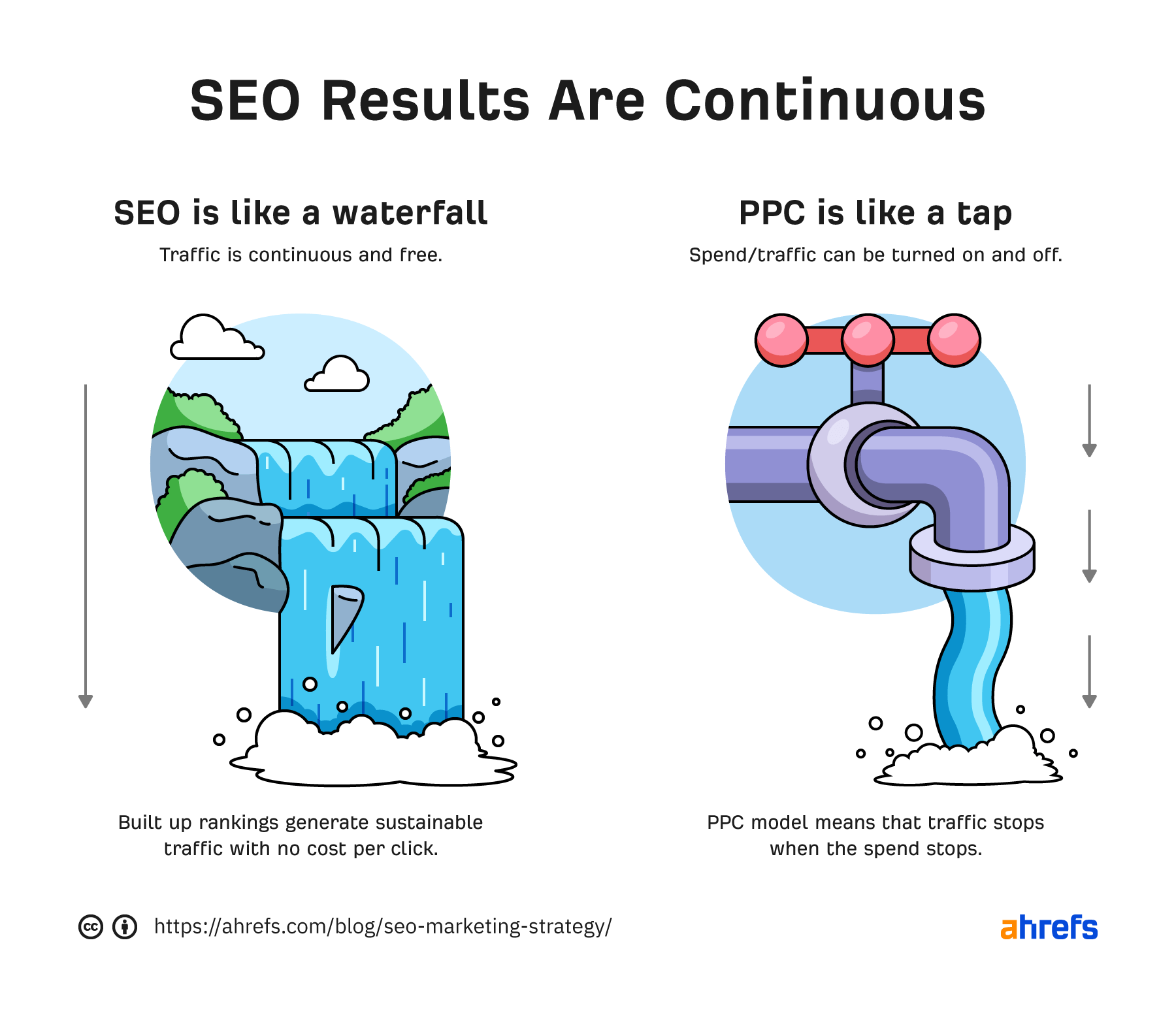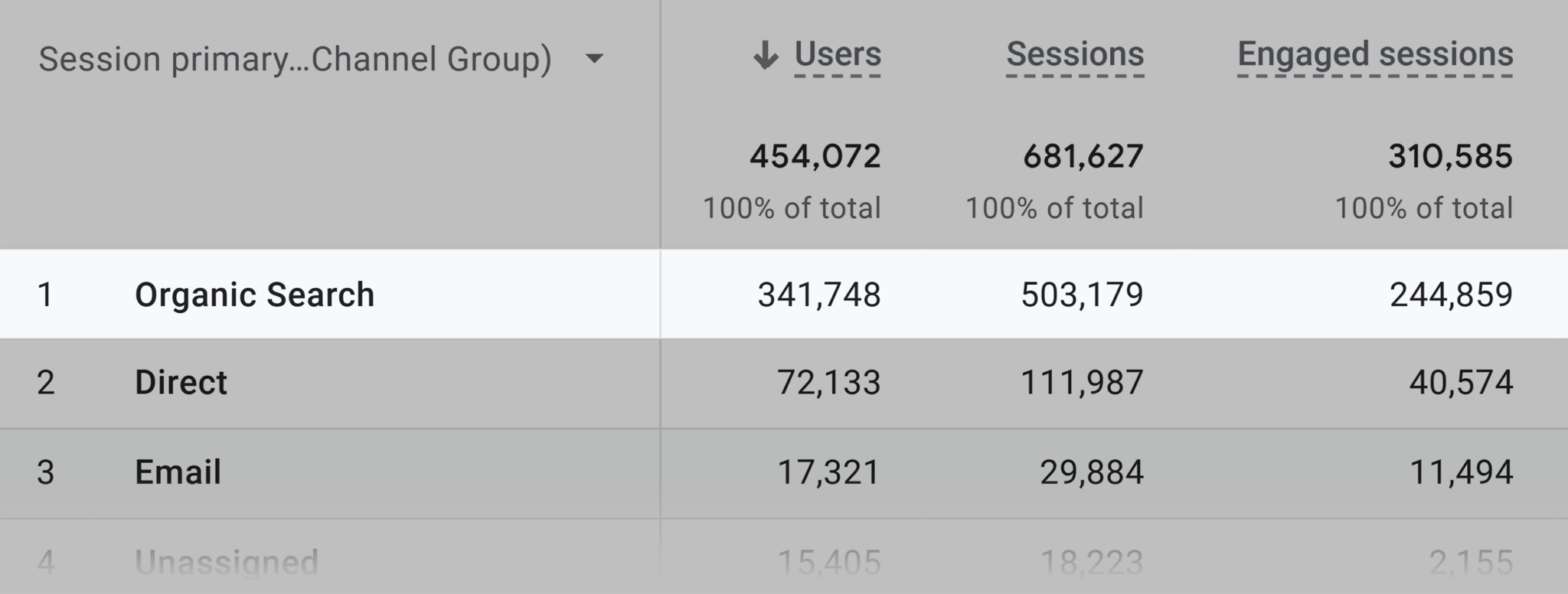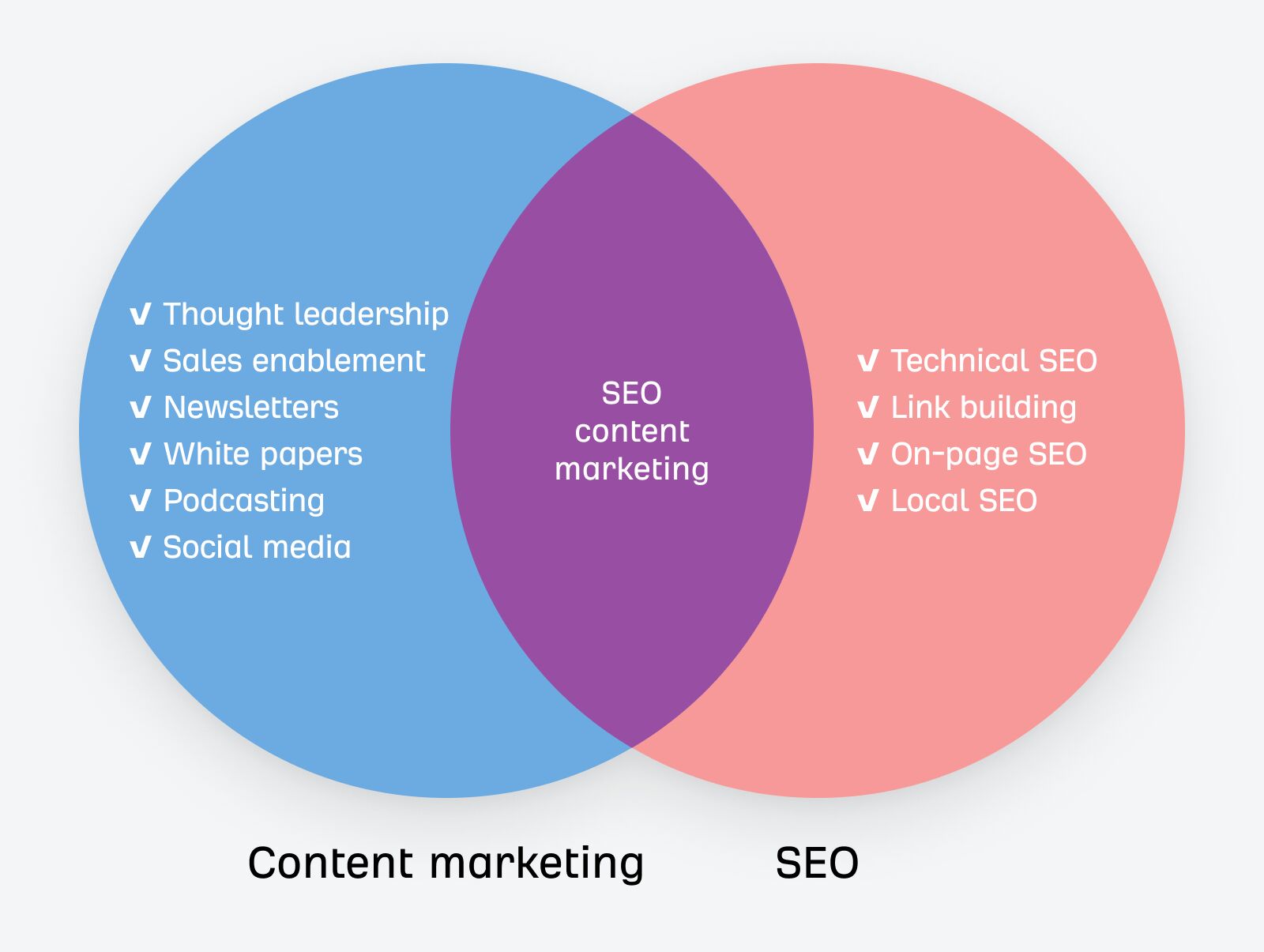As digital marketing specialists, it’s easy to “have the blinkers on” and focus solely on the channel or channels nearest to your heart.
In my case, this is SEO. Having worked with several businesses and top brands over the past few years, I’ve learned that some specialists and marketing generalists are:
- Cannibalizing efforts between channels.
- Undervaluing organic search as a channel.
- Failing to align SEO with other disciplines effectively.
In this guide, I’ll explain why you should include SEO in your marketing strategy. I’ll also explain how you can align SEO with other disciplines—from PPC to brand building.
Aligning SEO with other disciplines
Specialists can be guilty of becoming isolated from other channels. Often, you’ll hear debates about one discipline versus another, such as SEO vs. PPC. The reality is that having multiple strong-performing channels is vital for business success, and there’s often more opportunity to align than most specialists realize.
SEO and brand building/traditional advertising
Traditional advertising, such as TV, radio, and billboard advertising, can create a lot of search demand. How often within a TV advert are we prompted to “search” for a brand name or a product?
The SEO team can ensure you are maximizing “SERP real estate” by being an entity in the Knowledge Graph and targeting search features such as People Also Ask. Furthermore, the SEO team can ensure all applicable content is up to date and well optimized.
Another area where the SEO department can help out traditional marketers is by using organic search to assist in market share calculations. Calculating market share is tricky, and the SEO team can help you calculate it through a metric called “share of search.”
At the EffWorks Global 2020 event hosted by IPA (a U.K. trade body), effectiveness guru Les Binet shared how he was experimenting with “share of search” to predict market share “sometimes up to a year ahead.” Les described the metric as a fast and predictive measure for short- and long-term ad effects.
This metric looks specifically at branded, organic search volume data. To calculate your “share of search,” you divide the total search volume of your brand against the total search volume of all brands in your niche (including your own).
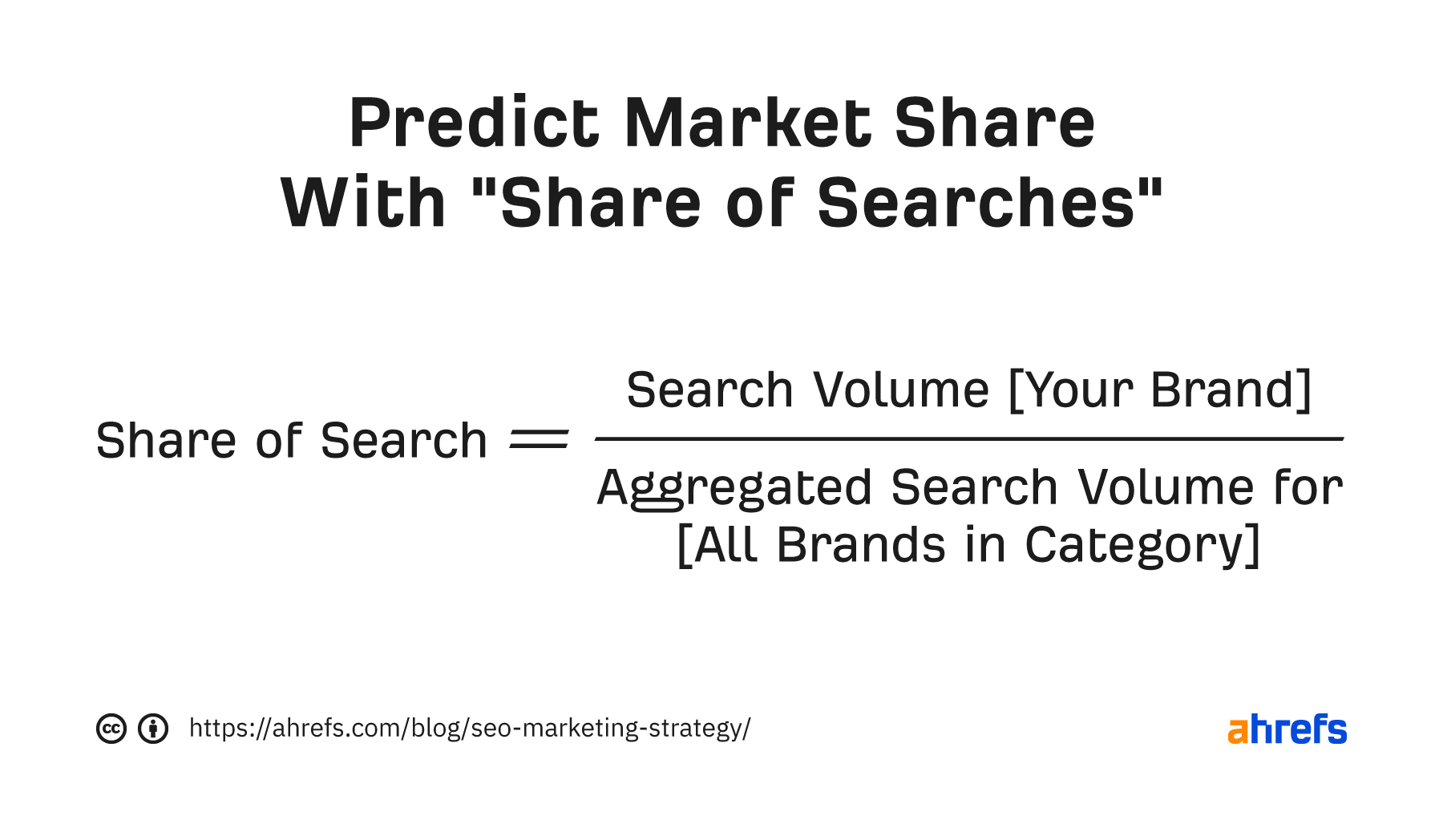
For example, I’ve taken five popular U.S. donut brands and put them into Ahrefs’ Keywords Explorer.
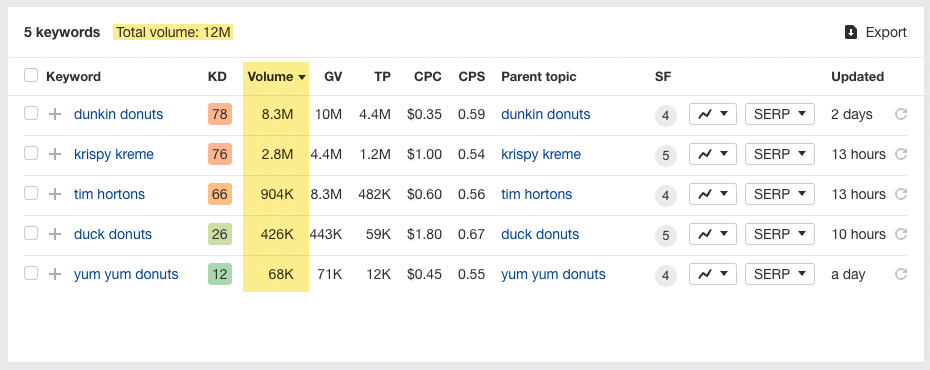
We can see that Dunkin Donuts is by far and away the most popular, with a 69% market share across these five brands (8.3 million/12 million).
Of course, there are more than five big donut brands in the U.S. The more expansive you go with your list, the more accurate your calculation will be.
SEO and paid search
Both SEO and paid search teams work with keywords a lot. This provides the perfect opportunity for sharing resources, particularly those keyword research files that often take hours to compile. But it’s not just about the keyword data. Sharing analytics data between teams is also useful, such as click-through rates, conversion rates, and other metrics.
As highlighted earlier in this article, PPC is instant, whereas SEO requires more of a “runway” to achieve results. This is the exact reason that these two teams should align on strategy.
Let’s say you have identified some top new keywords to target and want to gain traffic via these keywords right away. While you wait for your optimized content to be crawled by Google, to mature, and to subsequently rank, the PPC team can immediately acquire traffic for these keywords.
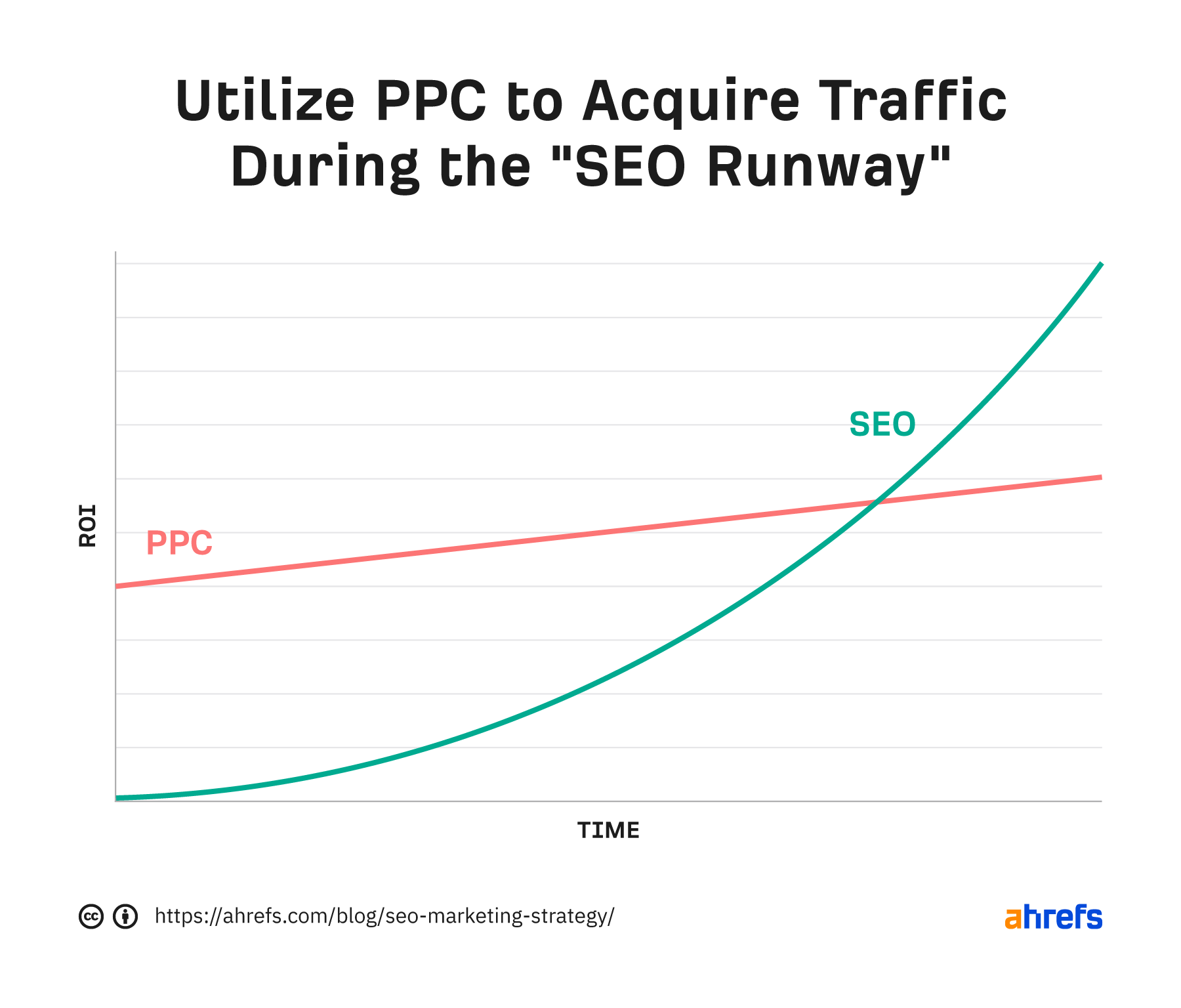
Once you are through the “SEO runway” and generating organic traffic for these keywords, the PPC team may then consider moving the spending to alternative keywords to generate organic traffic.
A common question is, “Should PPC target keywords that already perform well in SEO?” There is no right or wrong answer to this question, as all approaches have pros and cons.
By targeting the same keywords through SEO and PPC, you are holding two results competing against each other. Many believe this is a good thing, as it leads to more SERP “real estate,” which ultimately leads to more clicks overall.
That said, you will inevitably be paying for some clicks you would have already received for free through the organic result. This leads to a drop in organic traffic for the respective keywords.
Jamie’s verdict
I always review this on a case-by-case basis. More often than not, my recommendation is not to target the same keywords through both SEO and PPC. It’s impossible to rank in position #1 organically for all relevant keywords to your business. So I find it more effective to avoid the overlap and ensure PPC teams are using their budget to target keywords that are yet to rank or are underperforming in SEO.
That said, if certain keywords are critical to a business, then there is certainly a business case to go for “SERP dominance” and target through both SEO and PPC.
Successful PPC campaigns can also indirectly have a positive impact on SEO. Backlinks are a key ranking factor in SEO. The more visibility your content receives, the more likely people are to link to your site. In the video below, Ahrefs’ Sam Oh explains how PPC advertising can help build those all-important links.
SEO and UX
SEOs and user experience teams have been prone to the odd fallout over strategy. In modern SEO, however, the two teams should be more aligned than ever.
Shady tactics that game the algorithm and offer a poor experience no longer work in SEO. Google’s algorithm is now much more advanced and looks to reward high-quality websites that provide a good experience to their users.
There are several user experience factors that influence SEO. Mobile optimization is one of the more prominent examples.
Most web users now use a mobile device instead of a desktop or tablet. This is reflected in Google’s algorithm, with mobile usability being an important ranking factor. Google will also predominantly crawl the mobile version of your website.
Another UX optimization, which is also a ranking signal in SEO, is page speed.
Page speed, albeit more of a minor ranking signal, is used in the algorithm and is more important than ever in SEO following the introduction of Core Web Vitals as a ranking factor in 2021. Core Web Vitals focus on three key metrics that have a big impact on the experience of the user. Largest Contentful Paint (loading), First Input Delay (interactivity), and Cumulative Layout Shift (visual stability).
Both Core Web Vitals and mobile friendliness fall under Google’s “Page Experience” set of ranking signals. This also includes site security via SSL certification (HTTPS over HTTP) and not displaying intrusive interstitials (pop-ups).
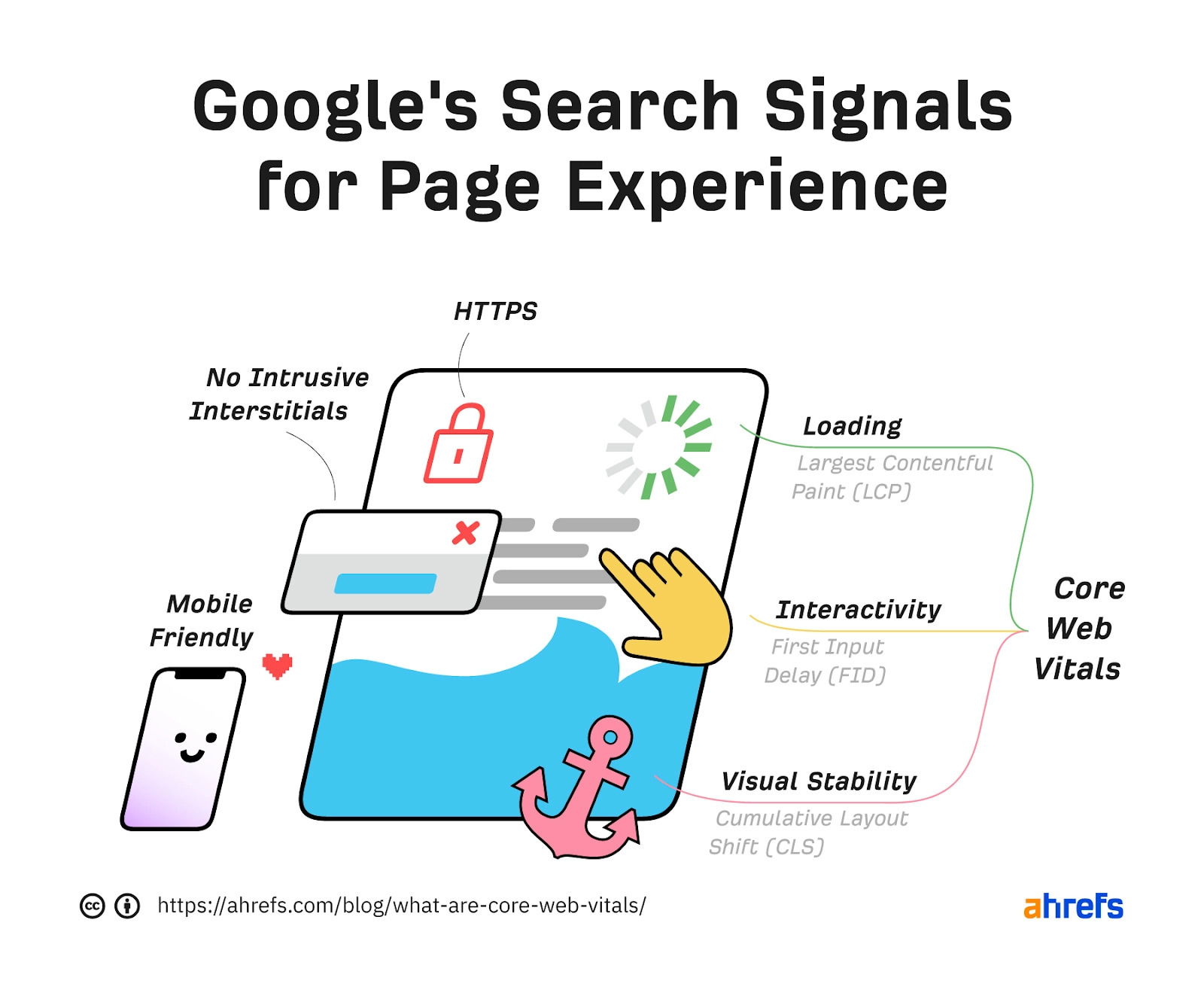
A third key optimization used in both UX and SEO is site structure. Ensuring your content is organized and internally linked helps users and bots discover your content.
Keen to hear more about the importance of site structure for both UX and SEO? Be sure to check out our Michal Pecánek’s guide to website structure.
Bonus tip
Breadcrumbs are great for user experience. They allow users (and bots) to navigate through the site’s structure easily.
Breadcrumb linking is an aspect of internal linking that is undervalued. Breadcrumb links are highly effective at passing PageRank due to their prominent on-page location.
SEO and PR
Public relations (PR) can have a significant influence on SEO performance. So much so that SEOs have formed digital PR (DPR or sometimes “SEO PR”), a spin-off of traditional PR designed to focus on the areas that benefit SEO the most.
While similar to traditional PR, DPR is more focused on building backlinks and growing brand awareness through online publications.
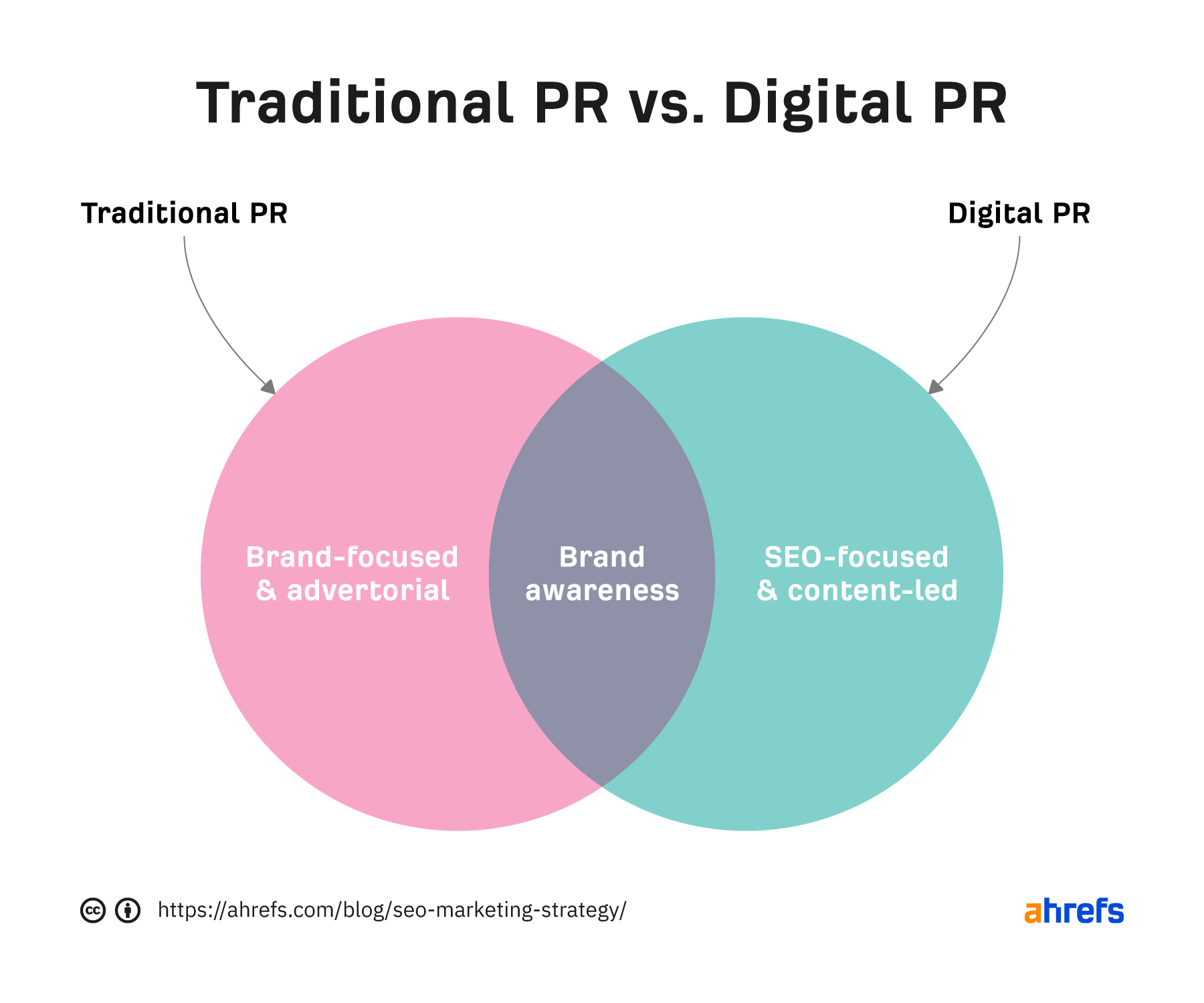
Link building is one of three key pillars in SEO. What sets DPR link building apart from the rest is that you build links from authoritative publications in a natural, “white hat,” and high-quality way.
I love some of the things I see from digital pr, it’s a shame it often gets bucketed with the spammy kind of link building. It’s just as critical as tech SEO, probably more so in many cases.
— John Mueller is mostly not here 🐀 (@JohnMu) January 23, 2021
SEOs, PRs, or DPRs can align with traditional PR teams by sharing media lists (often journalist contacts) and data. This allows for more efficiency as they work toward their respective goals.
Bonus tip
Be aware that PR experts can be territorial when it comes to outreach, but this is perfectly understandable. Let’s put ourselves in their shoes. They won’t want us to dive in and ruin relationships they have spent a lot of time building.
So how can we go about this? My colleague, Charlotte Crowther, who is the digital PR manager at Kaizen, shares her top three tips to ease this situation:
- Remind traditional PRs of the shared interests – Although we may have slightly different KPIs, we are working toward the same goal: getting the best coverage for our business.
- Give them more of an understanding of our process – Being transparent about processes can help ease concerns. Despite having PR in the name, DPRs approach things quite differently from traditional PRs.
- Set out the rules from the very beginning – Starting the relationship with strong communication from the very beginning will help create any required workarounds, avoiding potential bumps in the road at every turn caused by a lack of communication.
Here’s an example of how you can build natural, high-quality backlinks through exciting digital PR campaigns.
At Kaizen, we worked with the folks at the startup, DirectlyApply. They tasked us with a link building campaign amid the COVID-19 pandemic.
Enter Susan, the future of the remote worker. Susan is a shocking 3D model of a remote worker’s appearance after staying at home for 25 years.

Susan was the talk of the U.K., with several media outlets talking about the physical impacts of working from home. The campaign resulted in over 200 backlinks and over 400 pieces of coverage.
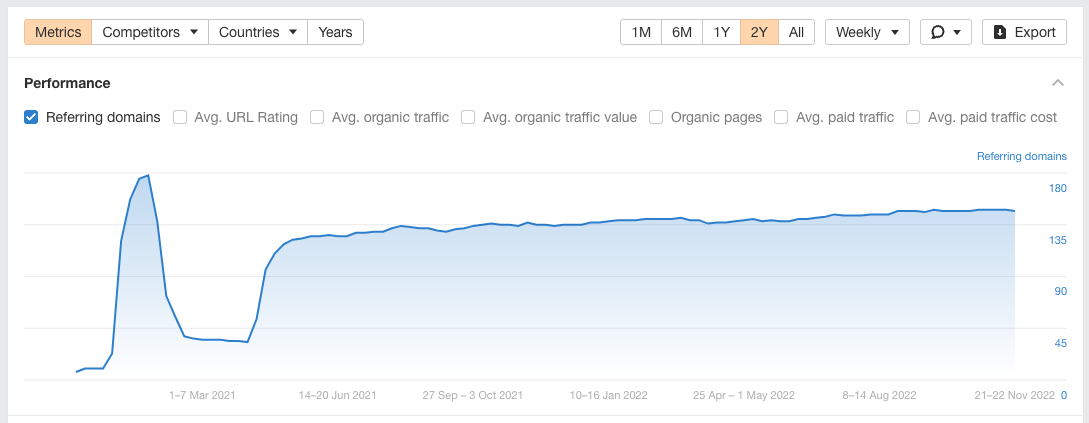
Not only did this campaign generate those all-important backlinks, but it also drove huge traction on social media. Susan generated over 60,000 shares, raising brand awareness even further.
SEO and social media
You might assume that SEO and social media teams have little in common. But there are tons of ways these teams should work together.
Social media is a great way to get eyes on your site, whether it be traditional social media sites (such as Twitter, Instagram, and Facebook) or video marketing sites (such as YouTube and TikTok). Similarly to all channels, the more people we have reading our content, the more likely we will naturally build relevant backlinks.
Social media is great for generating that initial “buzz” around new content and directing traffic to our pages. Rand Fishkin calls this the “spike of hope.” After a short while, however, this excitement wanes and clicks dry up, leading to the “flatline of nope.”
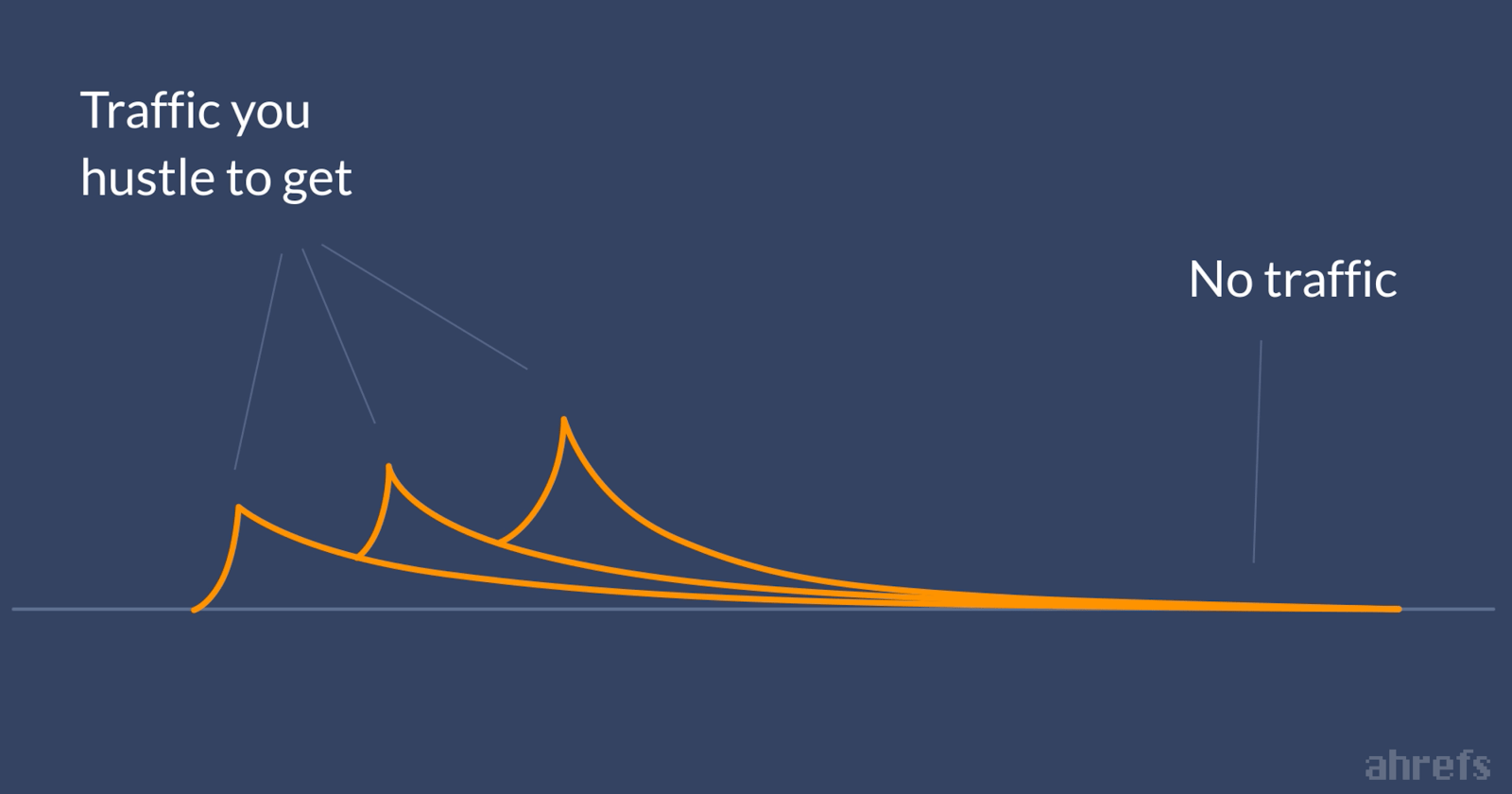
This isn’t necessarily a bad thing. It’s how social media marketing works. You focus on one piece of content and move on to the next exciting piece of content quickly.
That’s precisely why these two channels should be working together to avoid the “spike of hope, flatline of nope” scenario. The social media team is on hand to deliver that instant boost in traffic for new content. Then the SEO team is on hand to provide consistent traffic.
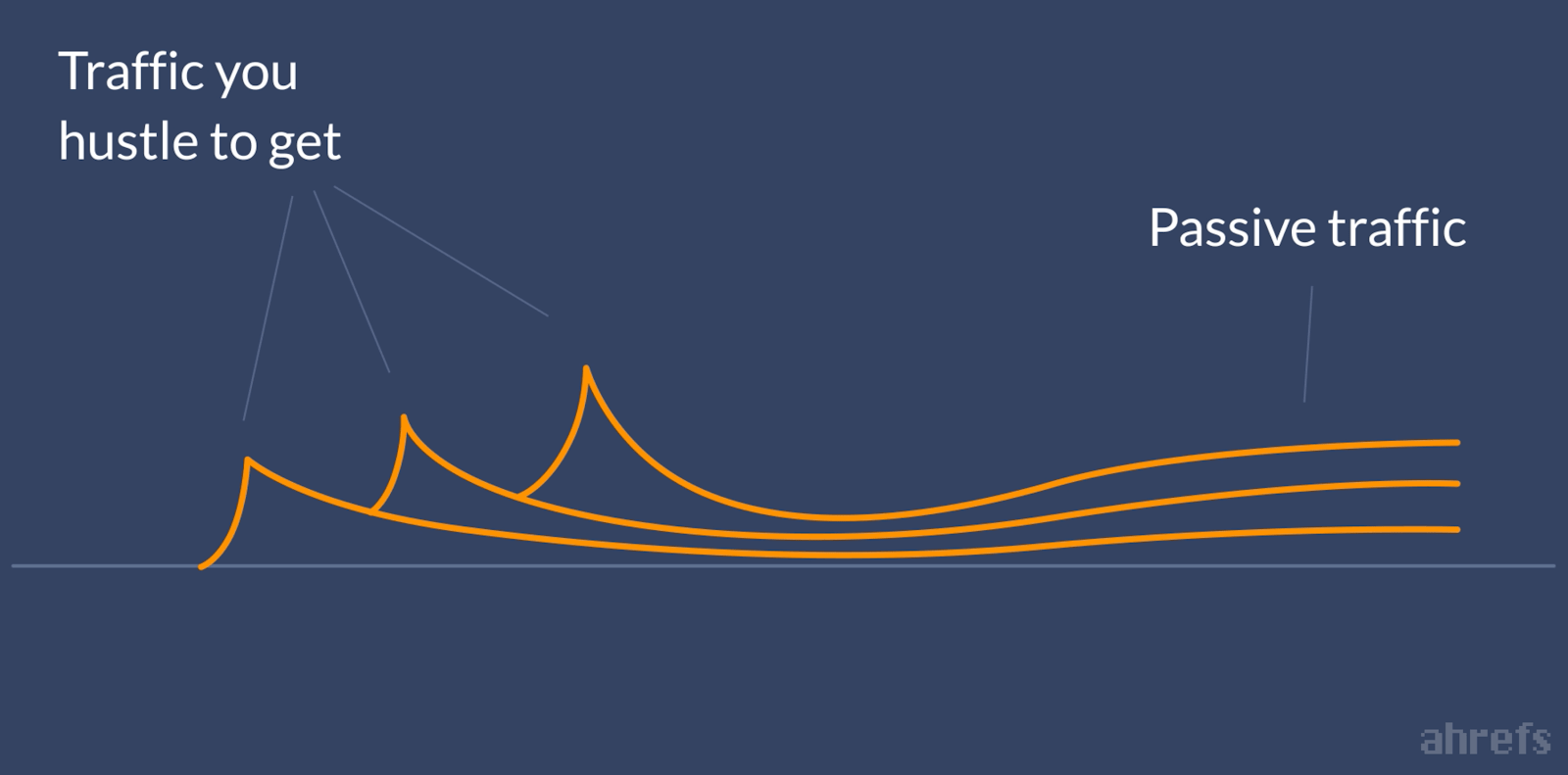
Not all content intended for SEO will instantly be guaranteed success on socials. Campaigns led by DPRs, however, are often exciting, engaging, and shareable. Keeping DPRs involved in this relationship is beneficial for social media teams, as they can boost these campaigns through social media and reformat future content for social channels.
Looking to acquire traffic through Google Discover? In Michal’s blog on this topic, he discusses the correlation between posts that get traction on social media and those that perform well on Google Discover.
In a quirky social media test, JR Oakes encouraged his followers to engage in a low-quality post, receiving over 100 retweets, 50+ likes, and many replies. The result? JR’s article indeed landed in Google Discover.
Correlation does not equal causation, of course. That said, there’s no harm in giving your SEO content that extra boost through social media.
Final thoughts
We’ve seen how SEO can interact and work with other marketing channels and how important strong alignment is in today’s omnichannel marketing world.
It’s important to remember that all channels are working toward driving growth for your business. So working together well will bring out the best in each channel for optimal growth.
Key takeaways:
- Align your SEO efforts with your strategic objectives
- Use “share of search” as a predictive metric to calculate market share
- Lean on PPC and social media to generate traffic during the “SEO runway” period
- SEO and UX teams have a lot more in common in modern times
- Ensure traditional PR and DPR teams are on the same page
Have any questions? Ping me on Twitter and let me know.
Content Copyrights Belong to The Author. All Rights Reserved.
We're A Dallas Digital Marketing Agency That is Experts At Social Media Marketing, Website Design and Emarketing and Promotion.

